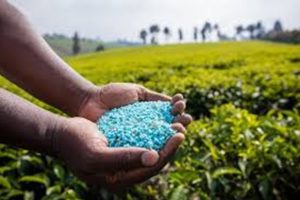
Despite the fact that Ethiopia has favorable conditions for most of the popular fruits ranging from apple, avocado, strawberry, orange, pineapple, banana, lemon, papaya, mango, watermelon and more, studies indicated that the country is not using its potential through exporting those products. Like other crops and vegetables, most of these fruits are grown by smallholder farmers. In recent years, especially after the country opened its door for flower growers, several international companies have been engaged in production of fruits such as, strawberry targeting mainly export market.
Following the reform, the new government of Ethiopia is dedicatedly working for benefiting from this sector parallel with supporting the exporters and other participants in the field. In January 2022, the government has reversed the former 70/30 foreign currency allocation arrangement that permitted fruit exporters to take up to 30 percent of export revenue in USD to a new 80/20 scheme that reduced the latter’s foreign currency share by 10 percent.
However, fruit producers and exporters are expressing their discontent that the new directive set on exporters’ share of foreign currency could impact the quality and international competitiveness of exportable items, whilst the Ministry of Agriculture said it is ready to address problems arising from the measure. The amended directive was issued by the National Bank of Ethiopia and came into effect on January 6, 2022.
Commenting on the issue to The Ethiopian Herald, Abyssinia Flowers Private Limited Company Coordinator Bas Terlow said that the directive has many positive impacts for the field. Parallel with its advantages, it has also its own adverse impact on importing fertilizers, chemicals and other inputs necessary to produce quality flower products that fit international standards. If things continue in the current condition, the company’s ability to import agricultural input will be significantly harmed.
Noting flower and fruit growers are working tirelessly to reverse the new directive; Bas indicated that the new Dollar distribution formula is a major challenge for investors in the sector.
Joost Heij, General Manager of Selet Hulling PLC, Country Manager Tradin Organic Ethiopia, shared the above argument. The company is particularly specialized in adding value to avocado products. “I think the government is well aware that such directives are challenges, especially for producers and exporters. Of course, most traders in Ethiopia are interested in exporting coffee, sesame and other commodities and earning dollars for their imports.”
Ministry of Agriculture’s Horticultural Investment Section Director Mekonnen Solomon who noted the new directive is a temporary measure, highlighted that the problem may need to be carefully investigated and complaints would be properly addressed. To this end, florists must provide accurate information about the amount of foreign currency they generate from their exports.
“The Vegetable Growers and Exporters Association have not been providing us with enough information. In this regard, some complaints may arise. If there is accurate information, it is easy to put in place viable measures,” he noted.
The government of Ethiopia, particularly, Ethiopian Horticulture Producer Exporters Association (EHPEA) is working exhaustively in order to increase the nations’ foreign currency earnings from this sector. Accordingly, EHPEA was recently organized a national conference under the theme “Enhance Opportunities in Agri-Business”.
The conference organized with an objective to promote and address sector’s contribution for the development of the agri-business in the country. On the panel discussion, it was stated that in order to be self-sufficient in food and to grow the country’s economy, all stakeholders should be involved and encouraged in the agricultural sector.
Invited speakers who are engaged in agri-business shared their experiences, which was a great learning platform for the participants.
Coupled with the conference, the association has conducted a B2B session with Fruit and Vegetable Growers and Buyers from Djibouti in Addis Ababa. “As B2B-meetings are pre-arranged, targeted appointments dedicated to get buyers and exhibitors to meet, the two sides have discussed on the major points that can help them to work jointly,” Zelalem Messele, Chairperson of the association said.
According to him, EHPEA has conducted a briefing session to its member farms regarding market opportunities in Djibouti to scale up the fruit and vegetable export. On the briefing, the assessment on market potential of Djibouti and the comparative advantage of Ethiopian growers to penetrate the high end as well as mass markets presented by EHPEA.
Along with the presentation, the participants discussed on the way forward emphasizing the need to improving market value chain and proposed action to organize a B2B session with Djibouti buyers. It has been said that an agreement has been reached to supply vegetable and fruit products to Djibouti market. Henceforth, Ethiopia and Djibouti have agreed to supply new vegetable and fruit products to Djibouti market.
On the forum, many Ethiopian fruit and vegetable exporters have agreed to provide more than 20 types of quality products to major Djibouti markets. It is also said that the Ethiopian Horticulture Manufacturers and Senders Association has served as an important platform to evaluate business discussions and to improve vegetable and fruit products sent to Djibouti.
It has been stated that regional trade ties need to be strengthened especially during the current global food crisis. Information gained from the Ministry of Foreign Affairs of Ethiopia shows that the Djibouti delegation team has visited Bishoftu and Qoka farms.
Meanwhile, EHPEA is also working with different city administrations and institutions in order to support the sector. As a result, Bahir Dar University Horticulture Department students, researchers and masters students recently visited Bahir Dar Fresh PLC. and Ethio Agri-Ceft PLC.
The program organized by EHPEA with a theme ‘Horticulture for Future Generations’ to give students a chance to get a hands-on agricultural learning experience and a new perspective on the horticulture industry. This kind of program organized on a yearly base which is open to any student who wants additional perspectives and networking opportunities in agriculture.
On the program the participants got a chance to learn the practical way of growing blueberries from seedling to packing as per the export stand. They also got the exposure on how to manage a green waste using compost system where the farms currently benefiting by changing their waste into wealth.
Bahir Dar Fresh is a company engaged in the production and export of blueberries near to Bahir Dar City. Blueberry is coming into the picture of Ethiopian fruit export commodity.
The company launched its first export last week. At the inauguration ceremony held in the farm complex, the company’s manager Mr. Fransisco stated that the company is achieving best results to produce high quality blueberries for the export market.
He also added, the company will create 800 job opportunities and generate 2.5 million USD per year when it fully develops its 45h/a holding in the coming two years. High level of Amhara region officials and major stakeholders were attending the inauguration ceremony.
Aynalem Niguesse Amhara region economic cluster coordinator in the rank of deputy administrator, in her opening remarks appreciated the success of the company to implement the project with in short period of time. She also expressed the regional government’s commitment to encourage investors engaged in the production of high value crops for the export market.
Congratulating Bahir Dar Fresh for its success to grow and export blueberries for export market which is the first of its kind in Ethiopia, the Chairperson stated that his office will work hard to address the problems related with new Dollar distribution, and other problems which hinder the sector’s export market.
BY HIZKEL HAILU
THE ETHIOPIAN HERALD THURSDAY 5 MAY 2022





